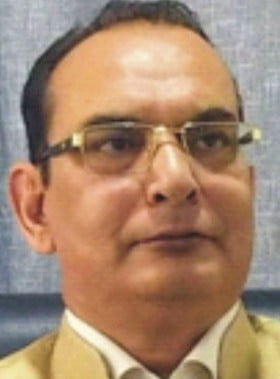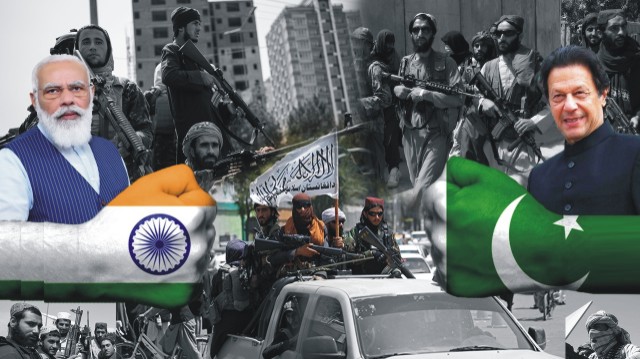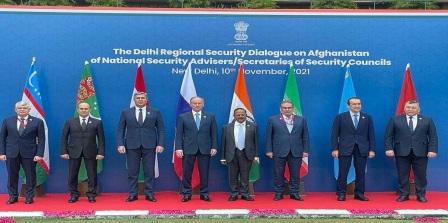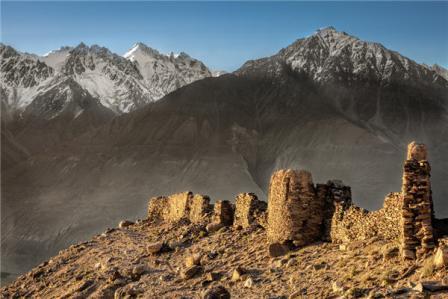

The ascendancy of Taliban to power in Afghanistan almost two-and-a-half months ago, after the hasty and chaotic withdrawal of the US forces from the country had raised hopes that Afghanistan may see the dawn of a peaceful era and the Taliban 2.0 might be able to establish a stable and secure government in the country.
Since August a lot of regional and multilateral meetings and conferences have been hosted to find a road map to lead Afghanistan to peace and stability, besides various country’s representatives meeting Taliban representatives in Doha.
Countries that have a lot of stake in Kabul and are affected by the Afghanistan affairs both internally and externally have taken most of these initiatives.
Meetings on Afghanistan
Russia hosted the first regional conference titled Moscow Format Consultations on Afghanistan in which all the Central Asian republics, China, Iran, Pakistan and India and a high-level Taliban delegation also participated.

Its objective was to find “a regional consensus” amongst the participants regarding the Taliban2.0. But the primary objective was to get the Taliban to form a broad-based government in Kabul, reflecting the country’s ethnic and religious diversity, ensure basic human rights of all Afghans, particularly the women and children, and get an assurance from the Taliban that Afghan territory will not be allowed to be used as a launchpad for terrorist attacks on other countries.
Soon after, Tehran hosted a similar conference of regional and neighbouring states to discuss how to deal with the Taliban. Once again, the de facto objective was to find a regional consensus and to pressurise the Taliban to adhere to its commitments.Its additional aim was to ensure the welfare and safety of the Hazara community and other Shias of Afghanistan.
DRSD and T+ Meetings
However, the most curious meetings were hosted by India and Pakistanon 10 and 11 November in New Delhi- called Delhi Regional Security Dialogue and Islamabad-called Troika Plus, respectively. It seems as if the two regional foes wanted to establish their supremacy over each other, in order to play a crucial role in the redevelopment of Afghanistan.

But more curious play out during these meetings was that no Taliban representative was present at either of the two, though the acting foreign minister of the Taliban government, Amir Khan Muttaqi was present in Islamabad from 10 to 12 November. He had to contend with meeting the participating special representatives of Pakistan, US, Russia and China and Pakistan’ prime minister and foreign minister separately.
In yet another twist Russia, issued a statement of its own after the release of the Delhi Declaration, based on a twist of words and technicalities, but this is uncalled for in diplomatic circles.
Pakistan and China didn’t attended the DRSD, Pakistan’s NSA Moeed Yusuf said he would not attend the New Delhi meeting saying ‘…a spoiler can’t be a peacemaker”.India called Pakistan’s decision unfortunate and said it reflects its mind-set of viewing Afghanistan as its protectorate. Its comments against India are an unsuccessful attempt to deflect attention from its pernicious role in Afghanistan
On China skipping the dialogue, sources said that though it is not attending the conclave because of the scheduling difficulties, it has conveyed its readiness to maintain contacts with India on Afghanistan through bilateral and multilateral channels.
Why so much worry about Afghanistan?
Now the question that arises is why are different regional and international players so interested in Afghanistan? The US which entered Afghanistan twenty years back, following the traces of its one time prodigy in the name of War on Terror, is also seen kowtowing to the same Taliban with which it fought for twenty long years.
The underlying reason seems to be based on reports, which originated at different times during the last twenty years, but were described as controversy theories and were brushed under the carpet. But now the turn of events shows that they indeed were true.
According to reports published by Afghanistan’s Ministry of Mines and Petroleum, the country possesses at least $1 trillion of untapped mineral resources. A country of 38 million people is estimated to hold more than 2.2 billion tonnes of iron ore, 1.3 billion tonnes of marble and 1.4 million tonnes of rare earth minerals like Lithium, Chromite, Aluminium etc. besides Gold and Silver.
According to geologist Scott Montgomery, a minimum of seven to 10 years is required to develop large-scale mining in Afghanistan, to become a major source of revenue for the poor country. On September 2, the Taliban said that the group would rely primarily on financing from China, which already holds several long-term mining leases around the country.
So one can deduce that this newfound love for Afghanis and Afghanistan is based on the hunger for these minerals.
 During the last twenty years the American geologists might have identified the key areas and processes to be adopted to mine these resources, yet the US based on experience understands very well that to commercially exploit this natural wealth of Afghanistan, a peaceful and business conducive atmosphere is needed, otherwise in a war ravaged country the cost of mineral commercialisation may shoot up very high.
During the last twenty years the American geologists might have identified the key areas and processes to be adopted to mine these resources, yet the US based on experience understands very well that to commercially exploit this natural wealth of Afghanistan, a peaceful and business conducive atmosphere is needed, otherwise in a war ravaged country the cost of mineral commercialisation may shoot up very high.
That’s why it seems to have propped up Taliban 2.0, ensuring that they are able to establish their government and promising them to give a small percentage of the revenues back to it as Developmental Aid and pocket the big chunk of revenue and utilising the rare minerals for its industries. The rest of the international community too seems to be following on this blueprint. A classic case of present day economic imperialism.
As far as India is concerned, it wants to play a constructive role in Afghanistan, so as to ensure that the still present rogue terrorist elements in Afghanistan do not find their way to Indian Kashmir. Though it established contacts with Taliban last, but was seen as lagging behind to pursue them proactively, perhaps because of internal political dynamics.
But it will have to take a calculated risk to engage with Taliban with foresight, so as to manage Pakistan’s rude attitude on the issue, which considers Afghanistan as its protectorate and can’t tolerate any Indian play. Only then India could claim to be a regional power. ![]()
____________________
Also Read:
Ploughing Tokenism – A Political Machination
Demystifying Demonetization — War on Black Money or Legalized Plunder and Organized Loot?
Need to amend laws like UAPA to provide for punishment for those who slap false
Why not 40 pc tickets for women in Punjab and elsewhere?
Punjab – How a deadly cocktail of Agri-Water-Energy nexus going to destroy it?
North Pole and the ideological conflict of RSS & Hindutva
Jallianwala Bagh Renovation – A Memoricide of Punjab
Politics of Symbolism: Dalit Chief Ministers in India

Disclaimer : PunjabTodayTV.com and other platforms of the Punjab Today group strive to include views and opinions from across the entire spectrum, but by no means do we agree with everything we publish. Our efforts and editorial choices consistently underscore our authors’ right to the freedom of speech. However, it should be clear to all readers that individual authors are responsible for the information, ideas or opinions in their articles, and very often, these do not reflect the views of PunjabTodayTV.com or other platforms of the group. Punjab Today does not assume any responsibility or liability for the views of authors whose work appears here.
Punjab Today believes in serious, engaging, narrative journalism at a time when mainstream media houses seem to have given up on long-form writing and news television has blurred or altogether erased the lines between news and slapstick entertainment. We at Punjab Today believe that readers such as yourself appreciate cerebral journalism, and would like you to hold us against the best international industry standards. Brickbats are welcome even more than bouquets, though an occasional pat on the back is always encouraging. Good journalism can be a lifeline in these uncertain times worldwide. You can support us in myriad ways. To begin with, by spreading word about us and forwarding this reportage. Stay engaged.
— Team PT


Copyright © Punjab Today TV : All right Reserve 2016 - 2024 |